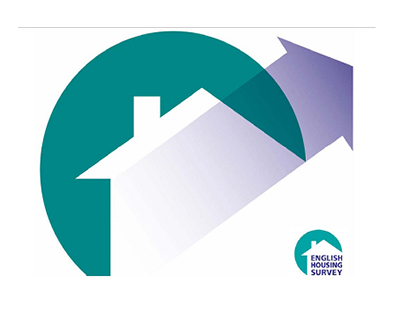
Owner occupation in Britain will plummet from its current level of about 68 per cent of homes to around 60 per cent in just 10 years.
That is the prediction of Richard Snook, senior economist at respected business consultancy PwC.
“We project that the proportion of owner occupiers, with or without a mortgage, will decline from its peak of around 70% in the mid-2000s to only around 60% in 2025. The long rise in the UK owner occupation rate in the post-war years seems to have gone into reverse” he says.
However, record numbers of people will own their homes outright, with no mortgage debt, by 2025.
PwC says that today some 8.4m homes are owned outright but in 10 years time that will be 10.6m households, equivalent to some 35 per cent of all homes. “A key driver is the rising proportion of over 60 year olds in the UK, who are far more likely to have paid off their mortgages” says a PwC report.
The number of households who own their home with a mortgage fell from around 10m in 2001 to only around 8m last year. This is projected to decline further to just under 7.2m by 2025 as limited housing supply and mortgage availability make it harder for first time buyers to get on the housing ladder.
The consultancy also says that housing supply shortages will persist for at least the next decade and that the numbers of households privately renting will rise, reaching 25 per cent of all households by 2025.
In the immediate term, PwC says house price growth has moderated since last summer, particularly in London.
But persistent lack of supply means that medium-term house price growth is projected to average just over 5.0 per cent per annum over the period to 2020. This implies that the average residential property in the UK could be worth around £279,000 in 2015, rising to around £360,000 by 2020.

















%20-%20IMAGE%20Client%20Accounting%20%E2%80%93%20what%20are%20your%20options.jpg)










Join the conversation
Jump to latest comment and add your reply
Forecasting 'doom' in the UK housing market, though potentially useful, does not actually solve anything. I cite the recent research by PwC into house price levels. To resolve the accelerating crises would require significant work on the infrastructure of the housing market itself.
For example take our nation's road system. If we want to move increasingly large numbers of cars efficiently around it appropriate road improvements are a fundamental requirement.
The same goes for our housing market. If we want to be able to market and transact sales of increasingly large numbers of houses (to cater for our ever growing core population), improvements in the efficiency of the UK housing market itself are desperately needed and long overdue. Full concentration on the planning and executing of these improvements is absolutely essential to this.
Thinking we can leave it to the market itself to sort out these problems is simply taking the 'road' to failure !!
The politicians and their advisors keep kicking these problems back into the long grass instead of trying to deal with them head-on but I have to ask and keep asking, why?
To read information on the only way to achieve due success in dealing with the current housing market problems and helping countless numbers of households to live a better life in the process, refer to the previously published (but little known or commented upon) "Hendry Solution".
Earlier article published on this blog site. This gives full details of our set proposals for resolving the price inefficiencies within the UK housing market.
But...but...but...what about the property-owning democracy we keep hearing about?
Wow Peter Hendry it's been a while. Good to have you back....
It's no real surprise, is it? With a lack of supply and a lack of affordable housing stock, people are finding it more difficult than ever to buy. The large deposits that are needed are out of the reach of many, particularly those in Generation Rent, and mortgages are more difficult to acquire (for various reasons).
The PwC report said that the cost of running a house is not so much of an issue - with low mortgage rates meaning monthly repayments for homeowners are lower than what some private renters have to shell out - it's affording the house in the first place that is the main problem.
Home ownership reached a peak in the 80s, 90s and early 2000s, with Thatcher's RTB, 100% mortgages and a more relaxed attitude to lending from banks and building societies. That all changed with the financial crisis in 2008 and home ownership has been on a downward spiral ever since.
This wouldn't be a major problem - many on the Continent rent for their whole lives with few issues - if the standard to private rented accommodation was good enough. Which, in many cases, it's not. And it's not secure. Or affordable. Any tenant thinking about buying a home will find it nigh on impossible to save up for a deposit if half their income is going straight out again on rent.
As you say, John, this whole idea of a property-owning democracy is laughable. The government don't take housing seriously and they will continue to follow that mantra until there is a drastic fall in house prices and the economy takes a nosedive too. Then they might take action. Until then, don't hold your breath.
Either you build more houses and make them more affordable, or you improve the PRS (and also make it affordable) so it's actually a long-term prospect for people. Not everyone wants to buy, but if buying (in the long-term is going to be more cost-effective, where's the incentive to rent?
Unfortunately, the government will ignore this report and focus instead on tearing up the welfare state bit by bit and ruining the NHS. They quite clearly don't give two stuffs about the housing crisis, so things are very unlikely to change anytime soon.
You have a point. It seems the main goal of the government is to feed more cash into the housing market in every way possible with the hope that by doing so, the whole economy might somehow pick up! ;)
"The politicians and their advisors keep kicking these problems back into the long grass instead of trying to deal with them head-on but I have to ask and keep asking, why?"
Because, on the whole, those at the very top of government are a bunch of incompetent, clueless charlatans. All in it for themselves, all career politicians, all with no idea of how real life actually works outside their Westminster, Eton-and-Oxford educated bubble.
The very fact that Brandon Lewis doesn't have a Cabinet position says it all. Housing is a fundamental right and need, it should be up there with the NHS, the economy, foreign policy and education as the main priorities for the government. But it isn't and hasn't been for the last few decades now. That needs to change if we have any hope of reforming the property market to something resembling normal. At the moment it consists of ridiculously high prices in some areas, especially London and the South East, a dearth of social housing and a private rented sector that is overcrowded and too expensive, with many examples of sub-standard accommodation.
There is a lot to fix. Those of us in the industry know that, but our voices aren't being heard by the people who have the power to change it.
So many armchair experts here. If you have all the answers, why don't you go and tell Brandon Lewis how to sort it all out? He's got a very hard, complex job - trying to juggle a number of different elements and keep as many people happy as he can. He's never going to please everyone, no matter what he or the government do.
I don't think the housing market is in as dire straits as some here make out. The doom-mongering is way over the top. Yes, we need more houses, but steps are being taken to ensure that happens. Give them time, they've only been back in government for 3 months!
And no, Algarve and Fake, there are not many examples of sub-standard accommodation in the PRS. And no, it's not overcrowded or expensive. At least not in the area where I rent property, and I know friends who are landlords who don't recognise this dismal view of the PRS either.
Private landlords seem to have become the new estate agents - an easy target, a popular scapegoat for frustrated people to take a pop at. Yes, there are rogue landlords out there, but they account for only a very small minority. The media just blow it out of all proportion to paint this picture of angelic tenants and evil landlords. That's not the reality! When will people wake up to that?
Dear Rookie,
The Housing Minister isn't interested in trying to sort out the problems besetting the housing market. I have tried to have a meeting with him (and indeed his predecessors), but none are remotely interested.
Interesting insight, Peter. I thought Brandon Lewis was doing an alright job before the election, although he didn't actually take much decisive action. As a landlord himself, he should have known better than most the biggest issues in the PRS and the property industry as a whole. Since the election, though, he seems to have vanished off the face of the earth, making about one comment on a property-related issue.
Obviously, given his lack of a Cabinet position, his hands are probably tied as the government focuses on other things they consider more important while attempting to push through the new wave of RTB. Maybe we're doing him a disservice and he's actually doing some sterling work behind the scenes, but that seems highly unlikely. The government had about five different ministers responsible for housing last time out - including the one and only Grant Shapps/Michael Green - this time they barely seem to have one.
Please login to comment